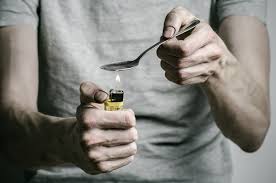

Relapse warning signs and addiction recovery plan when observed can help reduce instances of failed treatment
Relapse warning signs and addiction recovery plan: Effective addiction treatment strategies
Relapses do occur differently in people’s lives. It can happen suddenly, and people struggling with drug or alcohol cravings can give in without making any effort of seeking for help. In situations like that, the best prevention ways would be first understanding all the relapse warning signs of addiction and factors that commonly lead to it. Taking into consideration that these factors are never constant as they vary for person to person’s specific situation. The following are some of the causes of relapse emotional triggers, social situations and physical changes:
- Sudden changes in routine, especially missing work, doctor’s appointments or support meetings
- Socializing with individuals from drinking or drug-use days
- Social pressures or conflicts
- Perfectionism in home or work life
- Obsessing over drugs or alcohol
- Major financial changes
- Loss of a loved one
- Health issues
- Feelings of anxiety, worry or confusion
- Exhibiting obsessive behavior in any area of life
- Exhibiting excessive anger
- Changes in personal hygiene, sleep or appetite
- Change in marital status
- Change in employment
- Boredom with life
- Avoiding responsibilities or issues
These factors are some of the reason why doctor Akoury made a decision to for this facility (AWAREmed Health and Wellness Resource Center) is to help in by all means. Therefore we know the great danger imposed to us by addiction and ours is to help you get your life back in the most professional way. Therefore if the above signs suit your case, then you need help without hesitation. Call us today and schedule for an appointment with doctor Dalal Akoury for the commencement of your total recovery.
Relapse warning signs and addiction recovery plan: Developing a Plan of Action for Addiction Relapse Prevention
Doctor Akoury says that even though you can make positive decisions to minimize relapse triggers in your life, there comes a time when you must deal with strong cravings. And according to AWAREmed Health and Wellness Resource Center, certain actions can be beneficial during the time of craving. In fact calling someone who is also in recovery as soon as you experience a craving or feel like you are unable to control your craving is very productive. You may also want to consider creating an index card you can carry with you in a wallet, purse or pocket. On one side, record the names and phone numbers for several people you can call as soon as you experience any sort of craving. Although you certainly want to include sponsors and hotline numbers on that card, you can also include contact information for supportive family members and friends. On the other side of the index card, write down five things you can do if you start to experience cravings. Options might include attending a recovery meeting, jogging, reaching out to your higher power or engaging in a social activity.
Relapse warning signs and addiction recovery plan: Avoidance is an effective tool
Finally, and according to a study published in The American Journal on Addictions, avoidance behavior is one of the most successful addiction-relapse prevention tools. Although it is not healthy to avoid issues related to finances, relationships or physical health, avoiding what some refer to as slippery situations can help reduce the chance that you will experience cravings or pressures to use drugs or alcohol. If possible, avoid locations where your chemical of choice is prevalent or easy to access. For some, this means avoiding bars or clubs. For others, it might mean avoiding the homes of certain friends or family members. Choosing not to hang out with anyone who abuses drugs or alcohol is also a good idea. If you cannot avoid a situation where temptation may arise, consider using a buddy system by asking a close friend, family member or sponsor to attend the event with you.
Relapse warning signs and addiction recovery plan: Effective addiction treatment strategies

0 comments
Write a comment